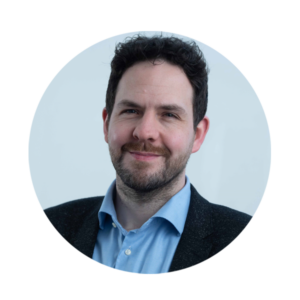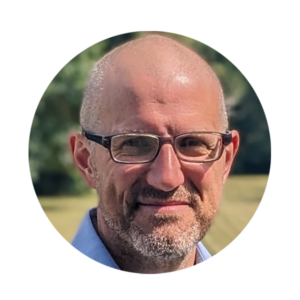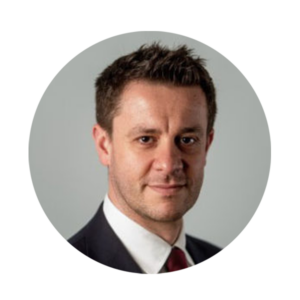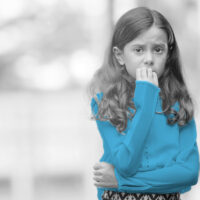Bookings closed
Anxiety disorders remain among the most common mental health challenges faced by children and adolescents, demanding ongoing innovation in both research and practice. Despite widespread recognition, critical gaps persist in understanding, diagnosing, and treating these conditions.
This year’s eagerly anticipated Emanuel Miller International Conference brings together leading advancements in anxiety research and treatment, offering attendees insights into innovative approaches and the latest evidence-based practices. It will explore cutting-edge developments in neurobiological mechanisms, cognitive approaches, family-based interventions, integration of digital delivery, and adaptations in neurodiverse young people. A must-attend for professionals dedicated to enhancing outcomes for young people with anxiety disorders.
A phenomenal line-up includes; Professor Cathy Creswell, Associate Professor Dylan Gee, Dr. Matt Hollocks, Dr. Georgina Krebs, Associate Professor Eleanor Leigh, Professor David Mataix-Cols, Professor Richard Meiser-Stedman, Dr. Wendy Silverman, and Prof. John Walkup.
About the talks
Professor Cathy Creswell – Making the most of digital approaches (and parents) to increase access to effective prevention and treatment for child anxiety problems
Demand for effective mental health care, and evidence-based psychological therapies in particular, far exceeds the available supply and prevention is typically deprioritised due to a lack of available resources. Digitally augmented approaches provide a potential mechanism to increase the efficiency of CBT delivery but it is critical that we do this without compromising accessibility, engagement and outcomes. This talk will draw on examples from a programme of mixed method studies to develop, evaluate, and implement digitally-augmented approaches in which parents are supported to help their children to prevent or overcome anxiety problems. Throughout the talk I will illustrate the potential of digitally augmented approaches, the challenges that they present (in particular in relation to implementation in routine practice), how we have overcome them so far, and some exciting future directions.
Learning objectives
1. To understand key benefits of integrated digitally augmented treatment approaches into routine mental health care settings.
2. To recognise potential barriers and facilitators for successful implementation of digitally augmented psychological therapies (through clinics and schools).
3. To be aware of examples of successful implementation.
Associate Professor Dylan Gee – The Neurobiology of Anxiety Disorders in Young People
The majority of anxiety disorders emerge during the course of development. While evidence-based treatments can be highly effective for youth with anxiety disorders, a subset of young individuals do not benefit sufficiently from current approaches. Insights from developmental neuroscience offer a promising avenue for improving youth well-being by optimizing treatments and enhancing early risk identification. Understanding how developmental changes in brain circuitry support emotional learning and regulation can inform the development of novel interventions and inform efforts to optimize interventions tailored to specific developmental stages and individual needs. Leveraging a multimodal approach that includes behavioral experiments, neuroimaging, psychophysiology, and ecological momentary assessment, my program of research investigates the neurobiological mechanisms underlying risk for anxiety and stress-related disorders. In particular, my lab explores how early experiences shape brain and behavioral development and why some individuals are at heightened risk for mental health disorders. In this talk, I will highlight developmental and stress-related changes in corticolimbic circuitry and fear reduction and discuss recent efforts to translate these findings to optimize treatments for youth with anxiety disorders.
Learning objectives
1. To understand the role of brain development in risk for anxiety disorders
2. To identify alterations in corticolimbic circuitry associated with anxiety disorders in youth
3. To apply knowledge about the developing brain to inform treatments for youth with anxiety disorders
Dr. Matt Hollocks – A Translational Approach to Understanding and Treating Anxiety in Autistic Youth
It is now well established that autistic people disproportionally experience co-occurring mental health difficulties with anxiety being the most prominent. However, the specific processes and risk factors which lead to this elevated prevalence remain unclear. Related to this, we have yet to make good progress in developing treatment approaches which account for the differences seen in autistic people. In this talk I will discuss some factors (Cognitive Flexibility; Social Camouflaging; Sensory experiences) which have been identified as being associated with greater mental health symptoms in autistic youth and how these may guide innovations in the development of more effective and individualised psychological interventions.
Learning objectives
1. To understand the prevalence and impact of anxiety in autistic youth.
2. To understand some of the key mechanisms that may drive anxiety for this group.
3. To explore how this understanding can guide innovations in psychological interventions.
Associate Professor Eleanor Leigh – Understanding and treating social anxiety in youth
Social anxiety disorder (SAD) is a common mental health problem that usually starts early in life and persists without treatment. It is impairing, bringing the risk of peer problems, school under attainment, depression and suicidality. The need for effective and accessible treatment of adolescent SAD is evident. In this talk, I will describe our approach to this challenge. I will share insights from our work examining the cognitive and behavioural mechanisms of social anxiety in adolescence, and then I will outline development and progress with our brief digital therapy.
Learning objectives
1. To understand the cognitive and behavioural mechanisms that contribute to social anxiety in adolescence.
2. To gain insights into the development and evaluation of brief digital therapy for adolescent social anxiety disorder.
3. To consider how to bring a mechanistic focus to clinical practice.
Professor David Mataix-Cols – OCD and related disorders in youth: A brief research update
Obsessive-compulsive disorder (OCD) is a relatively prevalent, childhood-onset condition associated with substantial disability, school failure, alcohol and substance misuse, suicide risk, and high societal costs. In this lecture, I will summarise the latest research on OCD and related disorders, with a focus on risk factors (e.g. childhood infections, bullying and traumatic experiences) and emerging treatment options, such as the development and implementation of digital therapies in regular healthcare.
Learning objectives
1. To learn about the latest research on OCD and related disorders.
2. To understand the concept of familial confounding in the study of risk factors for OCD and related disorders.
3. To learn about emerging treatment options.
Dr. Georgina Krebs – Body dysmorphic disorder and its relation to anxiety disorders in young people
Body dysmorphic disorder (BDD) typically emerges during adolescence and can be highly debilitating, yet it often goes undiagnosed and untreated. One reason for this is that BDD has historically been under-researched and, as a result, poorly understood. However, in recent years, increasing empirical attention has led to a better understanding of its presentation, impact, and treatment in young people. In this talk, I will summarise key findings on the epidemiology of BDD in youth, as well as its risk factors, underlying mechanisms, and treatment. Throughout the talk, I will highlight commonalities between BDD and anxiety disorders while also pinpointing clinically relevant differences.
Learning objectives
1. To understand the phenomenology, prevalence and impact of body dysmorphic disorder (BDD) in young people.
2. To gain insights into the risk factors, underlying mechanisms, and treatment approaches for BDD.
3. To consider the commonalities and differences between BDD and anxiety disorders.
Professor Richard Meiser-Stedman – Treating PTSD in children and adolescents: from trials to the clinic
PTSD is a highly distressing and impactful emotional disorder that affects a significant proportion of children and adolescents. As disturbing as PTSD is, there’s a growing consensus that it is a treatable condition in youth. In this trial I will outline the evidence that has built up over the past quarter of a century in support of different psychological therapies for PTSD in this age group, and the emerging evidence relating to how such treatments work. But how well does this literature relate to everyday clinical experience? I will outline some of the challenges associated with the – often considerable – conditions that are frequently comorbid with PTSD. Moreover, I will present evidence from recent research concerning how therapists might be supported in undertaking this testing clinical work.
Learning objectives
1. Evaluate the current evidence base for psychological treatments for PTSD in youth.
2. Explain the mechanisms through which psychological therapies for PTSD in young people exert their effects.
3. Identify common concerns clinicians may have when working with children and adolescents with PTSD and discuss strategies to address these challenges.
Professor Wendy Silverman – Parental involvement in the treatment of child and adolescent anxiety
Parent involvement is a widely used though not well-understood approach to treating child and adolescent anxiety disorders. This presentation will delve into theoretical and empirical foundations of involving parents in therapy, highlighting how certain parent behaviors such as reinforcement of avoidance behavior and psychological control contribute to the maintenance of youth anxiety. A discussion of the comparative effectiveness of CBT with and without parental involvement will also be provided. The presentation will conclude with important unaddressed questions about the role of parents in child and adolescent anxiety treatment, future research directions and clinical implications to enhance treatment outcomes.
Learning objectives
1. To understand how parental behaviors contribute to the maintenance of child and adolescent anxiety disorders.
2. To evaluate the comparative effectiveness of therapeutic approaches with and without parental involvement.
3. To highlight unaddressed questions, future research directions, and their implications for treatment.
Professor John Walkup – Pharmacological Treatment of Pediatric Anxiety Disorders
Pharmacological treatments have demonstrated efficacy for pediatric anxiety disorders. Yet pediatric anxiety disorders are often under diagnosed and under treated resulting in patients not getting evidenced based treatments, accumulating impairment and becoming at risk for maladaptive behaviors. For clinicians sorting normal healthy anxiety from pathological forms is critical to developing effective treatment planning. Implementing treatment is a multilevel effort that includes medication, individual and importantly full family engagement.
Learning objectives
1. To know the remission rates for evidence based treatments
2. To understand the course of untreated anxiety and the implications for treatment planning
3. To recognized key differential diagnostic challenges Anxiety vs ASD; Anxiety vs ADHD; Anxiety with Demoralization vs Depression
Programme
09:30 Welcome and introduction from Chair of the conference, Professor Andrea Danese, ACAMH Academic Secretary
09:35 Professor David Mataix-Cols – OCD and related disorders in youth: A brief research update
10:05 Q&A
10:15 Professor Richard Meiser-Stedman – Treating PTSD in children and adolescents: from trials to the clinic
10:45 Q&A
10:55 Break
11:05 Professor Cathy Creswell – Making the most of digital approaches (and parents) to increase access to effective prevention and treatment for child anxiety problems
11:35 Q&A
11:45 Dr. Matt Hollocks – A Translational Approach to Understanding and Treating Anxiety in Autistic Youth
12:15 Q&A
12:25 Dr. Georgina Krebs – Body dysmorphic disorder and its relation to anxiety disorders in young people
12:55 Q&A
13:05 Lunch
13:50 Welcome back
13:55 Associate Professor Eleanor Leigh – Understanding and treating social anxiety in youth
14:20 Q&A
14:30 Associate Professor Dylan Gee – The Neurobiology of Anxiety Disorders in Young People
14:55 Q&A
15:05 Break
15:15 Professor Wendy Silverman – Parental involvement in the treatment of child and adolescent anxiety
15:40
15:50 Professor John Walkup – Pharmacological Treatment of Pediatric Anxiety Disorders
16:15 Q&A
16:25 Closing remarks from Professor Andrea Danese, ACAMH Academic Secretary
About the speakers

Professor Cathy Creswell is Professor of Developmental Clinical Psychology at the University of Oxford, an Honorary Consultant Clinical Psychologist in Oxford Health NHS Foundation Trust, an NIHR Senior Investigator and a Fellow of the Academy of Medical Sciences. She leads The Oxford Psychological Interventions in Children and adolescents (TOPIC) research group which aims to improve outcomes from and access to psychological therapies for common mental health problems in children and young people. Her research particularly focuses on the development, maintenance and treatment of anxiety disorders in children.


Dr. Hollocks is a Clinical Senior Lecturer and Clinical Psychologist based in the Department of Child & Adolescent Psychiatry, King’s College London and the Service for Complex Autism and Associated Neurodevelopmental Disorders (SCAAND). He has a particular interest in expertise in understanding the common co-occurring mental health conditions such as anxiety and depression experienced by autistic young people. Dr Hollocks has explored several key processes associated with risk for anxiety and depression in autistic youth and has a particular focus on translating mechanistic research into better clinical care for young people with autism and other neurodevelopmental conditions.



Professor Mataix-Cols a clinical psychologist, specializes in the study and treatment of OCD and related disorders across the lifespan. He completed his PhD in 1999 and held positions at Imperial College London and King’s College London, becoming a full professor in 2012. In 2013, he joined Karolinska Institutet in Stockholm where he leads a research group and helped set up a specialist clinic. Much of his team’s current research involves the development of digital tools for the dissemination of psychological therapies for young people. He is a highly cited scientist with over 400 publications in peer-reviewed journals.

Professor Richard Meiser-Stedman has studied PTSD in children and teenagers since 2000. He studied for his PhD at the Institute of Psychiatry, where he was funded by a Medical Research Council (MRC) research studentship. He was awarded a Peggy Pollak Research Fellowship in Developmental Psychiatry to undertake further postdoctoral research into childhood PTSD, with a particular focus on PTSD in young and preschool children. He completed his clinical psychology training at the Institute of Psychiatry. From 2009 to 2014 Dr Meiser-Stedman was an MRC Clinician Scientist Fellow at the MRC Cognition and Brain Sciences Unit in Cambridge. While there he led the ASPECTS study, looking at whether PTSD in children and adolescents can be successfully treated using cognitive therapy in the early aftermath of a trauma. He was also awarded an MRC Centenary Award Grant to conduct a pilot trial looking at the treatment of PTSD following multiple traumas in children and adolescents. He is a co-investigator on the PYCES trial (the treatment of PTSD in preschool children) and the PROTECT study (looking at how families shape children’s responses to trauma). Dr Meiser-Stedman joined University of East Anglia in October 2014. From 2016 to 2020 Dr Meiser-Stedman undertook an NIHR Career Development Fellowship. This Fellowship focused on evaluating the efficacy of cognitive therapy for PTSD in children and adolescents who have been exposed to multiple traumas.


Professor John Walkup work covers three main areas of innovation and investigation. His work with movement disorders, specifically Tourette syndrome, uniquely spans psychiatry, child psychiatry and neurology. His expertise in child and adolescent psychiatry clinical trials focuses on the development and evaluation of psychopharmacological and psychosocial treatments and lastly, he has been involved in developing and evaluating interventions to reduce the large mental health disparities facing Native American youth, specifically drug use and suicide prevention. For his work, he has been awarded four achievement awards for child and adolescent psychiatry from the major psychiatry and research organizations in the United States, the Norbert and Charlotte Rieger Award for Academic Achievement in 2009 from the American Academy of Child and Adolescent Psychiatry, the Blanche F. Ittleson Award for Research in Child Psychiatry in 2011 from the American Psychiatric Association and the Schonfeld Award from the American Society of Adolescent Psychiatry in 2016. Lastly, in 2021 he was awarded the Ruane Prize for Outstanding Achievement in Child and Adolescent Psychiatric Research from the Brain and Behavior Research Foundation.

Andrea Danese is Professor of Child & Adolescent Psychiatry at the Institute of Psychiatry, Psychology & Neuroscience, King’s College London, UK and at the Child Study Center, Yale University. The research from his team focuses on childhood trauma, and he has published widely on the consequences of childhood trauma, the mechanisms through which childhood trauma affects health, and prevention and treatment of trauma-related psychopathology. Professor Danese is also Consultant Child & Adolescent Psychiatrist at the National & Specialist CAMHS Trauma, Anxiety, and Depression Clinic at the Maudsley Hospital, London, UK. He is the General Secretary of the European Society for Child & Adolescent Psychiatry (ESCAP) and the Academic Secretary of the Association of Child & Adolescent Mental Health (ACAMH). He is Editor-at-large of the Journal of the American Academy of Child & Adolescent Psychiatry and on the Editorial Board of several other scientific journals.

